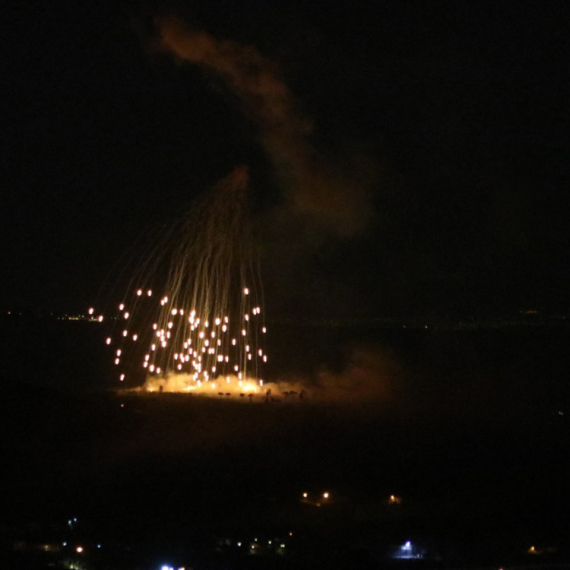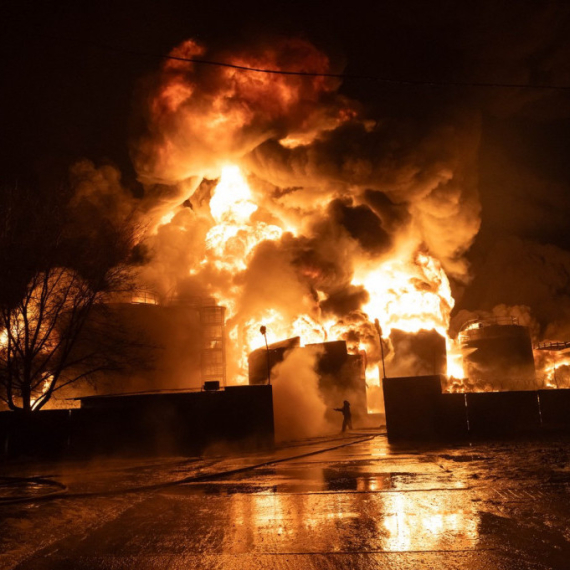Germany: Dioxin contamination spreads to pigs
For the first time since the dioxin scandal broke out in Germany, the toxin has been found in pigs, reports Deutsche Welle.
Tuesday, 11.01.2011.
13:54

For the first time since the dioxin scandal broke out in Germany, the toxin has been found in pigs, reports Deutsche Welle. EU officials have confirmed that the animal feed was also exported to France and Denmark. Germany: Dioxin contamination spreads to pigs German authorities have detected high levels of the toxic chemical dioxin in pork from a farm banned from selling since last week's scare, the Consumer Protection Ministry in the state of Lower Saxony said Tuesday. "A test on the meat has shown high levels of dioxin content," a ministry spokesman told the news agency AFP. One animal had been slaughtered for testing purposes and found to be over the limit. Hundreds of pigs on the farm were then culled. The high levels of dioxin were found early Tuesday at a farm in the county of Verden. The northern German farm was one of those supplied with animal feed containing ingredients made by a firm suspected of knowingly selling some 3,000 tons of fatty acids meant only for industrial use. Samples of the fat contained more than 70 times the approved amount of dioxin. The scandal broke last week when German investigators found excessive levels of dioxin in eggs and then some chickens. Authorities then froze sales of poultry, pork and eggs from thousands of farms. Around 4,700 of the country's 375,000 farms were shut down while tests were conducted, but most of them have reopened, leaving as of Monday 558 farms still subject to restrictions. The government has said so far that there is no immediate risk to public health. German officials say the dioxin levels pose no risk to humans if they only eat small amounts of the tainted food, but add that the contamination must be stamped out to avert serious long-term risks. Dioxins are formed by burning waste and through other industrial processes and have been shown to contribute to increased cancer rates and affect pregnant women. EU officials said Monday that some tainted animal feed had also been exported to France and Denmark. South Korea has restricted imports from Germany because of the affair, and Russia has said it may also take action. "The damage that has been caused is immense, not only financially but also when it comes to consumer trust... This is a scandal, as consumers who expect safe food were duped," German Agriculture Minister Ilse Aigner said on Monday. "This incident must and will have consequences," Aigner added. On Tuesday German officials are due to brief their EU counterparts in Brussels on the latest developments and are likely to face questions on the root cause of the incident and their response to it. A German parliamentary committee is also due to discuss the dioxin scandal, which some estimate could lead to more than 100 million euros ($129.5 million) in compensation claims.
Germany: Dioxin contamination spreads to pigs
German authorities have detected high levels of the toxic chemical dioxin in pork from a farm banned from selling since last week's scare, the Consumer Protection Ministry in the state of Lower Saxony said Tuesday."A test on the meat has shown high levels of dioxin content," a ministry spokesman told the news agency AFP.
One animal had been slaughtered for testing purposes and found to be over the limit. Hundreds of pigs on the farm were then culled.
The high levels of dioxin were found early Tuesday at a farm in the county of Verden.
The northern German farm was one of those supplied with animal feed containing ingredients made by a firm suspected of knowingly selling some 3,000 tons of fatty acids meant only for industrial use. Samples of the fat contained more than 70 times the approved amount of dioxin.
The scandal broke last week when German investigators found excessive levels of dioxin in eggs and then some chickens. Authorities then froze sales of poultry, pork and eggs from thousands of farms.
Around 4,700 of the country's 375,000 farms were shut down while tests were conducted, but most of them have reopened, leaving as of Monday 558 farms still subject to restrictions.
The government has said so far that there is no immediate risk to public health. German officials say the dioxin levels pose no risk to humans if they only eat small amounts of the tainted food, but add that the contamination must be stamped out to avert serious long-term risks.
Dioxins are formed by burning waste and through other industrial processes and have been shown to contribute to increased cancer rates and affect pregnant women.
EU officials said Monday that some tainted animal feed had also been exported to France and Denmark.
South Korea has restricted imports from Germany because of the affair, and Russia has said it may also take action.
"The damage that has been caused is immense, not only financially but also when it comes to consumer trust... This is a scandal, as consumers who expect safe food were duped," German Agriculture Minister Ilse Aigner said on Monday.
"This incident must and will have consequences," Aigner added.
On Tuesday German officials are due to brief their EU counterparts in Brussels on the latest developments and are likely to face questions on the root cause of the incident and their response to it.
A German parliamentary committee is also due to discuss the dioxin scandal, which some estimate could lead to more than 100 million euros ($129.5 million) in compensation claims.



























































Komentari 2
Pogledaj komentare